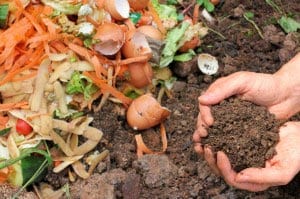Epsom Salts
 Hydrated magnesium sulfate, aka Epsom salts (available to buy from this page on Amazon)contain two important elements that plants need to maintain optimum health. Magnesium plays a vital role during photosynthesis and is required by plants for the proper functioning of many enzymatic processes. Seeds also need magnesium to germinate. Sulfur aids plants with several functions including amino acid production, root growth, and the formation of chlorophyll. This mineral also gives cole crops and Alliumstheir signature flavours.
Hydrated magnesium sulfate, aka Epsom salts (available to buy from this page on Amazon)contain two important elements that plants need to maintain optimum health. Magnesium plays a vital role during photosynthesis and is required by plants for the proper functioning of many enzymatic processes. Seeds also need magnesium to germinate. Sulfur aids plants with several functions including amino acid production, root growth, and the formation of chlorophyll. This mineral also gives cole crops and Alliumstheir signature flavours.Vinegar Fertiliser
Plain white vinegar is an inexpensive and effective fertilizer for acid-loving plants like roses, hydrangeas, and berries. Simply mix a tablespoon of vinegar in one gallon of water. Use this solution in lieu of your regular watering about once every three months. Remember to test your soil before altering the pH. While many plants thrive in an acidic environment, too low of a pH can be harmful.
Composting
 An excellent practice for recycling waste materials and feeding your garden at the same time, composting is becoming more and more popular with organic gardeners. Ingredients that make a successful compost mix include:
An excellent practice for recycling waste materials and feeding your garden at the same time, composting is becoming more and more popular with organic gardeners. Ingredients that make a successful compost mix include:
Air and water to sustain the bacteria responsible for decomposing organic matter,
Dry “brown” material (carbon) such as dead leaves, straw, and other dried garden and yard waste.
Wet “green” material (nitrogen) like rabbit or chicken manure, grass clippings, and other fresh plant matter. Try to avoid adding weed seeds to the mix. Your compost may not get hot enough to kill them.
Compost Tea
Once you have finished compost available, you can add it straight to the garden or turn it into tea for your plants. Fill a five-gallon bucket about a third of the way with finished compost. Add water until the bucket is almost full – about an inch or two from the lip. Leave the mixture to steep, stirring frequently (just like cooking stew in a crock pot.) After three or four days, strain the compost out using a porous fabric like cheesecloth. Return the solid material to the compost pile or feed it to your garden. The liquid should be diluted to about one part “tea” and ten parts fresh water. Apply the solution either directly to the ground or as a foliar spray.
As a side note: working with compost is messy (and stinky!) business. Remember to wear gloves and eye protection. You may also wish to don a breathing mask.
No comments:
Post a Comment